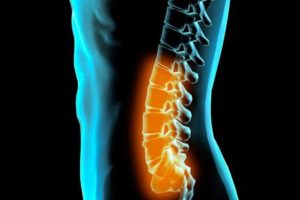DES MOINES IOWA SPINAL FUSION PERSONAL INJURY ATTORNEY
Des Moines, Iowa Personal Injury Attorney for Spinal Fusions. Contact us at 515-493-4878 or via email for a free consultation.

Des Moines Spinal Fusion Attorney
Our Des Moines personal injury attorneys have successfully represented many clients who required fusion surgery due to car accidents, motorcycle accidents, and truck accidents. If you have been injured in any way and may require a fusion, contact us today at 515-493-4878 or via email for a free consultation.
What is a spinal fusion?
A spinal fusion is a type of surgery that is employed to help with problems caused by issues with the vertebrae of the spine. It is important to not that there are many types of spinal injuries, such as whiplash, which typically require much less invasive treatment. That said, in essence, a fusion surgery seals two or more vertebrae together which then heal together forming, essentially, one solid bone. The formation of one solid bone prevents movement between the fused vertebrae and it also eliminates stretching of the nerves and muscles in the injured area.
The elimination of movement throughout the area of the spine that is injured is important because, often times, preventing movement prevents pain.
A fusion is a major surgery and, therefore, many diagnostic tests will be performed prior to the surgery to ensure that the fusion is the proper procedure to be used. The diagnostic tests may include x-rays, MRI scans, and CT scans.
Spinal fusions have been used on patients suffering from various spinal issues including, but not limited to:
Herniated discs
Spinal stenosis
Fractures
Infections
Degenerating discs
Tumors
Arthritis
Many patients have great relief following a spinal fusion. However, people do lose some flexibility in the spine because, as noted above, multiple discs are fused into one and can no longer move thus decreasing the flexibility. However, most patients are able to adapt to their restricted motion with relatively little trouble.
How is a spinal fusion surgery performed?
Different approaches can be taken when performing a fusion surgery depending on the preference of your surgeon and the exact nature of your injury.
In an “anterior approach”, your doctor gets access to your spine from the front. For example, in the case of an anterior lumbar (low back) fusion, your doctor will make an incision in your abdomen and work back to your spine. In an anterior cervical (neck) fusion, access to the injured area will be made via incision in your neck.
Conversely, a “posterior approach” is the procedure in which your doctor accesses your spine from the back. There is also a side approach that can be used that is known as a “lateral approach”.
With advances in technology, researchers are developing “minimally invasive” techniques which allow surgeons to perform fusion surgeries through small incisions.
Regardless of the approach your doctor takes (anterior, posterior, lateral), in order to fuse the discs, your doctor will use a boney material, known as a “bone graft” to stimulate the at-issue bones to fuse. Typically, the bone graft will involve small pieces of bone to be placed between the vertebrae. On occasion, larger pieces of bone may be used to help support damaged or weak discs.
A bone graft is sometimes taken for the patient’s hip in a process known as an “autograft”. However, an autograft requires a second incision in the patient that can lead to increased pain and risk. Fortunately, there are alternatives to the autograft such as an allograft in which bone is taken from a cadaver rather than from the patient.
Researchers have also developed artificial materials that can be used in lieu of real bone.
Spinal Fusion Hardware
In many cases, a fusion will require “internal fixation” in which a neurosurgeon will secure a fusion with hardware such as plates, screws, and rods. Internal fixation often improves the healing process. Additionally, due to the increased stability, internal fixation patients are often mobile sooner than those who do not have hardware installed.
Spinal Fusion Complications
Although fusion surgery has been performed for years, there are risks associated with the procedure such as:
Pain
Infection
Failure of the fusion
Arthritis
Nerve damage
Spinal Fusion Rehabilitation
It will take months for your vertebrae to truly fuse following a fusion surgery and it is imperative that the fused portion of the spine be kept aligned in order for proper healing. Your doctor and physical and occupational therapists should work with you prior to you being discharged from the hospital to ensure you are properly educated on taking care of your fusion.
Contact a Des Moines Spinal Fusion Lawyer
Ultimately, many people have had successful fusion surgeries and go on to live happy and productive lives. However, these surgeries, and the need for them, often involve extreme pain and suffering, extensive medical bills, and lost wages.
If you have been injured in an accident and need a spinal fusion, contact one of our Des Moines personal injury attorneys today for a free consultation.
Client Review
“Brad is honest, dedicated, thorough, and a compassionate listener. I felt totally at ease throughout the entire process.”
Michael K.


